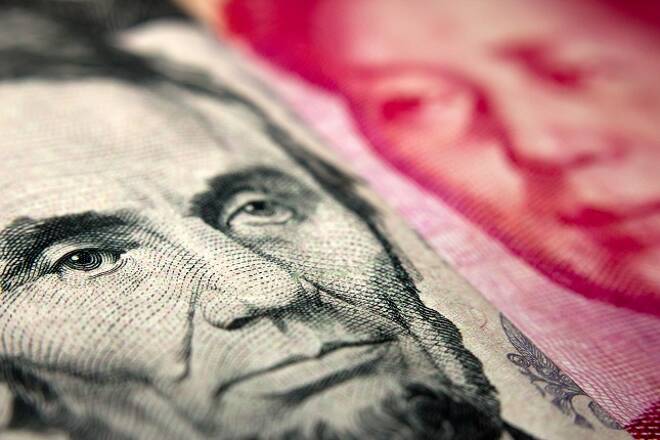Advertisement
Advertisement
Global Stocks Mixed as US-China Trade War Intensifies, EM Central Banks Seem to Have Repelled the Attack
Updated: Sep 25, 2018, 09:21 GMT+00:00
On Tuesday morning, global stock mixed as trade fears intensify. Investors await the FOMC rate decision tomorrow. Meanwhile, EM central banks have managed to stabilize their currencies.
Cautiousness returned to the markets at the beginning of the new week on the introduction of bilateral tariffs between the U.S. and China, as well as expectations of the Fed rates rise. It should also be noted that the tightening of the Fed’s policy forces the central banks of smaller countries to tighten their policies as well. The Central Banks of developing countries (Argentina, Turkey, Russia, Philippines) actively raised rates or unfolded their rhetoric towards the tightening in August and September in response to a very serious outflow of capital and the fall of national currencies.
Despite the similarity of form, the consequences for countries and currencies will vary drastically.
Policy tightening in the United States is a response to increased inflationary pressures because of a strong economic growth and one of the tightest labor market conditions for decades. Measured increases in rates do not hinder the economic growth and even motivate the demand to some extent, as consumers rush to credit at low rates, realizing that soon the lending will rise after the tightening from the Fed.
In emerging markets, it is often a different story. The central banks of Argentina and Turkey have increased the rates very sharply to stop the free fall of national currencies and frightening volatility of the markets. Now, this sharp policy tightening may become a serious strangling for growth in the coming months. Earlier last month, the South African rand sharply decreased after reports of an unexpected recession in the country.
Suggested Articles
- U.S. Stocks – Uncertainty, Too Many Outside Forces Pressuring Shares
- The USD is on the Move ahead of Trump Addressing the General Assembly
- Can Donald Trump Be Impeached?
It will not be surprising if in the coming months we will be more likely to receive reports about slowing growths of developing countries or recessions there (the Central Bank of Russia has already warned about such possibility).
The central banks of developing countries will probably have to fight back the attacks like the one we saw in August and September more than once in the coming months. In doing so, they will have to balance between the policy tightening and growth to maintain the attractiveness of the currency for external investors and avoid the economy knockdown.
This article was written by FxPro
About the Author
Alexander Kuptsikevichcontributor
Alexander is engaged in the analysis of the currency market, the world economy, gold and oil for more than 10 years. He gives commentaries to leading socio-political and economic magazines, gives interviews for radio and television, and publishes his own researches.
Advertisement
